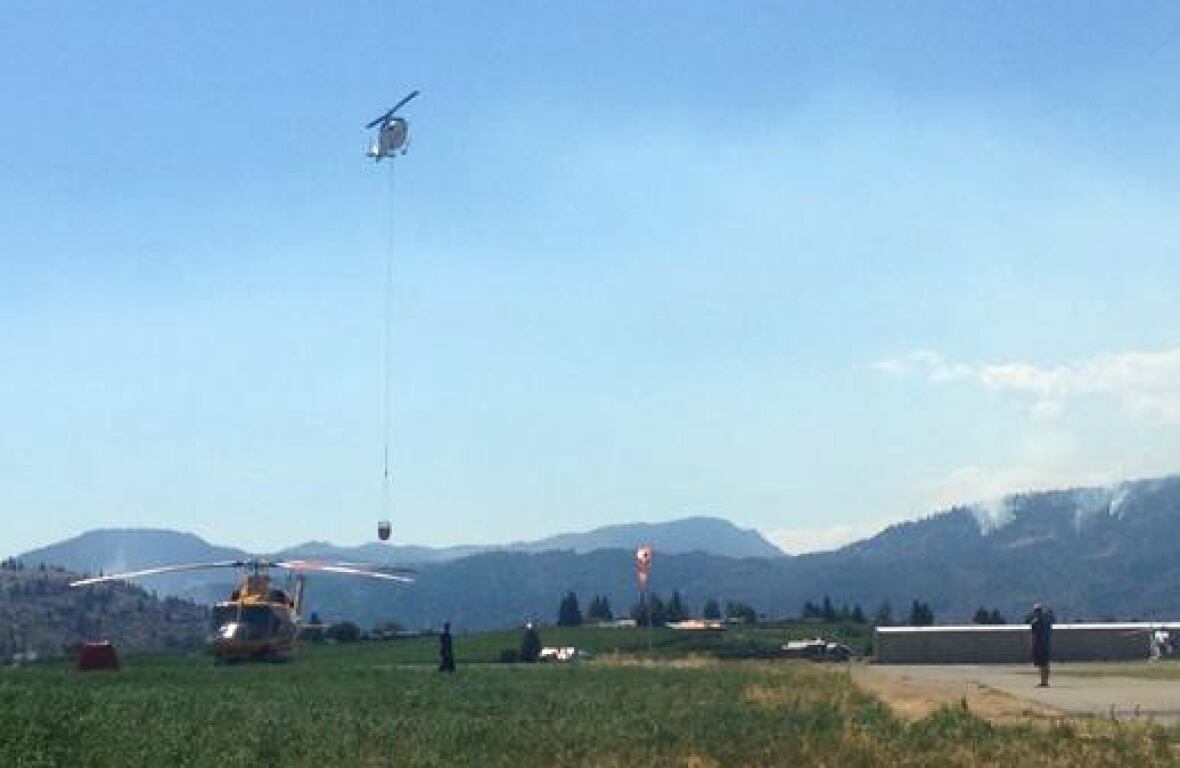New restrictions on drones near wildfires sought by B.C.
Drones grounded airtankers and helicopters at two wildfires this past summer

The B.C. government plans to toughen up the laws prohibiting the operation of drones near wildfires, after the unmanned aircraft grounded air tankers and helicopters that should have been fighting two forest fires earlier this summer.
Legislative amendments to the Wildfire Act will be introduced next spring, Mike Morris, the Parliamentary Secretary to the Minister of Forests, Lands and Natural Resource Operations, announced at a news conference in Prince George Friday.
"Our message is simple. If your drone is in the sky above an active wildfire, you are grounding firefighting aircraft, putting lives at risk and may cause the fire to spread," said Morris.
"This is completely unacceptable behaviour and there will be legal consequences for anyone who gets caught."
Morris did not reveal the specifics of the legislative changes, but he said staff are looking into a range of measures to improve enforcement including ticketing and seizures.
The provincial government is also calling on the federal government to tighten the rules affecting drones under the Canadian Aviation Regulations, including changes to protect personal privacy, registration of drones and certification of operators.
The province is also planning an information campaign in stores selling drones to let buyers know about the impacts the unmanned aircraft can have on wildfire fighting efforts. Drones keep crews grounded because they can cause serious damage to other, larger aircraft.

Flight restrictions
Currently, operating a drone that weighs under 35 kilograms recreationally requires neither a licence nor a special permit, though operators must follow a list of Transport Canada safety guidelines, which include keeping away from forest fires and anywhere the small aircraft might interfere with first responders.
The current maximum fine for an infraction is $25,000 and violators could spend up to 18 months in jail.
All wildfires are considered to be "flight restricted", according to the federal Canadian Aviation Regulations. The restricted area is within a radius of five nautical miles around the fire and to an altitude of 3,000 feet (about 915 metres) above ground level.
Provincial laws also include penalties for failure to comply with restricted area requirements.
"A person must not remain in or enter the area designated by an order as a restricted area. (Exceptions: travelling to or from his or her residence, travelling to or from firefighting operations, travelling on a highway)."

Tickets for violations are $230, while further penalties under the Wildfire Act included a fine not exceeding $5,000, or up to six months imprisonment, or both, and administrative penalties of up to $10,000.
On Aug. 16, eight helicopters and five fixed-wing aircraft that were supporting firefighting crews on the Testalinden Creek fire were grounded for more than four hours while the fire continued to spread.
Details of the other drone incident were not released, but Morris said it happened near Kelowna this summer.
No charges have laid in either case, but the investigations remain active, he said.